Motown Records was a hit machine. Here are the 50 greatest Motown hits from the Detroit era
As the National Museum of African American Music opens its doors, journalists from the USA TODAY Network explore the stories, places and people who helped make music what it is today in our expansive series, Hallowed Sound.
Motown Records’ creative ingenuity and commercial prowess made it a hit machine, one that’s still chugging along today — indeed, a list of Motown classics could fill a book. For now, here are 50 essential singles from Motown’s Detroit era, defined as 1959-1972, as selected by the Detroit Free Press and its readers to commemorate the label’s 50th anniversary.
Playlist: Click here to listen to these songs and more on Spotify
‘ABC’
Jackson 5 (1970)
A piece of sweet soul bubblegum from Michael Jackson and his brothers gave them a second No. 1 hit.
‘Ain’t No Mountain High Enough’
Marvin Gaye & Tammi Terrell (1967); Diana Ross (1970)
Nickolas Ashford and Valerie Simpson’s composition proved versatile enough to soar in three very different sets of hands: first as an ebullient duet by Gaye and Terrell, then as a simmering epic, complete with spoken-word passages, from Ross three years later.
‘Ain’t That Peculiar’
Marvin Gaye (1965)
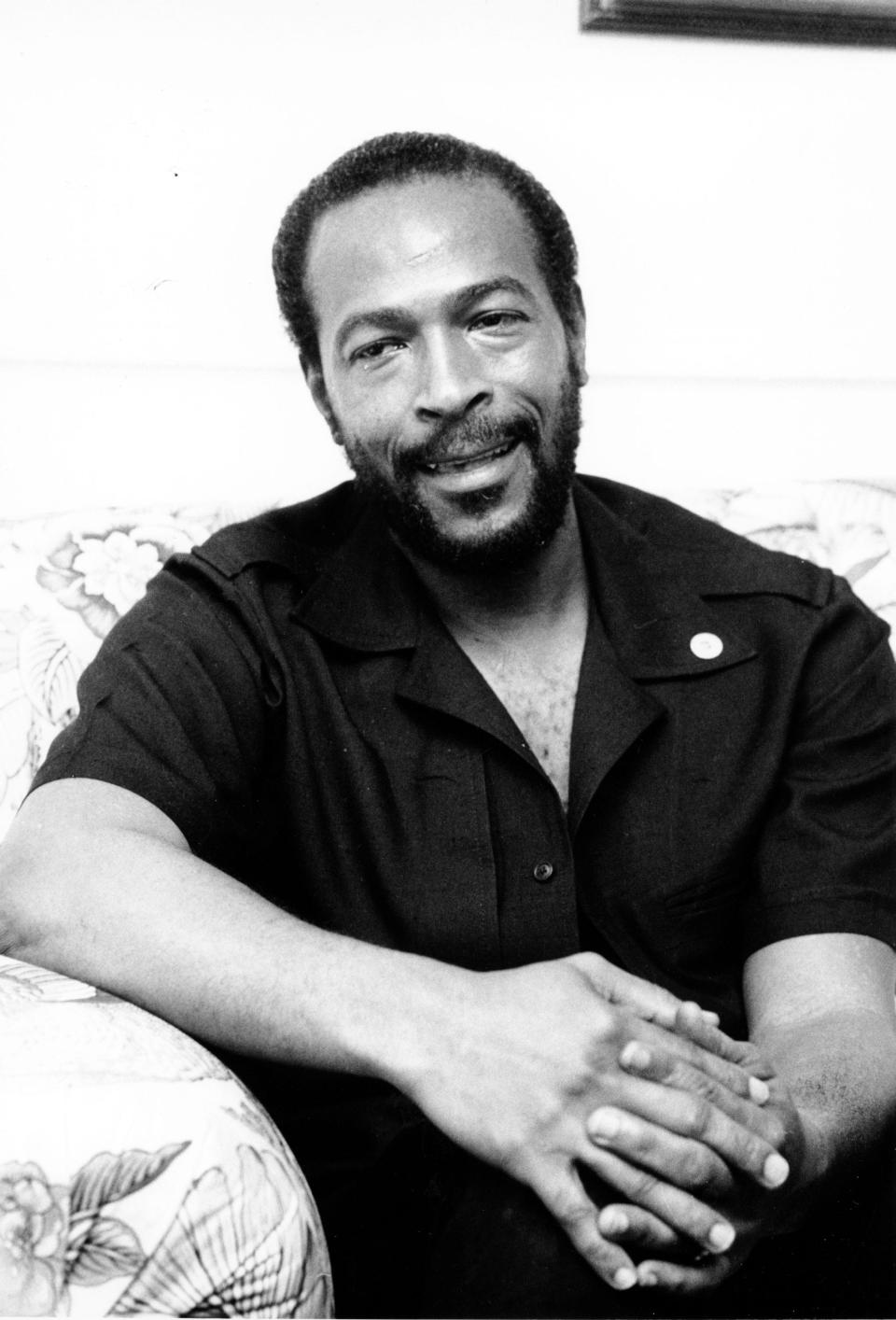
Gaye snagged his second million-seller with this Miracles-penned bit of infectious melancholy, topped by Marv Tarplin's guitar and Smokey Robinson's clever lyric.
‘Ain’t Too Proud to Beg’
The Temptations (1966)

Yeah, so what man wouldn't beg if he could do it with David Ruffin's raspy tenor?
‘Ask the Lonely’
Four Tops (1965)
Almost operatic in scope, packed with strings and grand flourishes, this sophomore Four Tops hit is an anthem for the heartsick.
‘Baby I Need Your Loving’
Four Tops (1964)
Recorded at 2 a.m. after a gig at Detroit's 20 Grand club, "Baby" made for one heck of a sleeper breakthrough.
‘Baby Love’
The Supremes (1964)
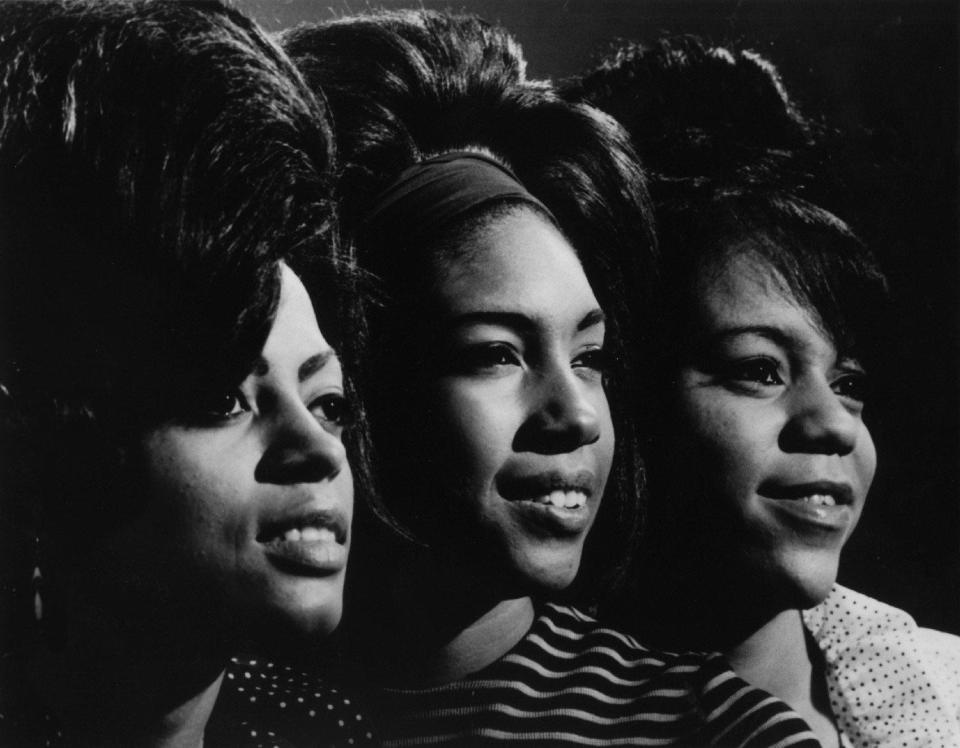
Been missin' ya, miss kissin' ya ... Ahhh, yes ... Diana Ross coos her way into the world's arms.
‘Back in My Arms Again’
The Supremes (1965)
The Supremes scored five consecutive No. 1 hits in '64-'65. This warm tribute to reunited love was the fifth.
‘Bernadette’
Four Tops (1967)
The veteran R&B quartet scored again thanks to an iconic bass line from James Jamerson and reliably ear-grabbing lead vocal from Levi Stubbs.
‘Come See About Me’
The Supremes (1964)
In the heat of Motown’s pressure cooker, Lamont Dozier hurriedly but masterfully penned this mid-tempo classic under pressure to follow up the Supremes' first hit ("Where Did Our Love Go").
‘Dancing in the Street’
Martha & the Vandellas (1964)
Hear that tambourine mixed high on the second and fourth beats? The horns, guitars and piano congested in the middle? The limber bass bouncing around below like a pinball? That's the Motown sound.
‘Do You Love Me’
The Contours (1962)
Frat-party R&B, Motown style. The single peaked at No. 3 upon its initial release, and nearly cracked the Top 10 again when it was reissued as part of 1988’s “More Dirty Dancing” soundtrack.
SUBSCRIBE: Help support quality journalism like this.
‘Fingertips - Part 2’
Little Stevie Wonder (1963)
Live and deliciously sloppy, this record was far removed from Motown's compressed studio sound. But then Wonder — little or big — never did quite fit the standard mold.
‘How Sweet It Is (To Be Loved By You)’
Marvin Gaye (1965)
With its spare and simple instrumentation, this track leaves ample room for young Gaye to slip his supple vocals right into your ear.
‘I Can’t Help Myself’
Four Tops (1965)
Two studio takes were enough to capture what endures as one of pop's most blessed vocal performances: If Levi Stubbs' passionate pleading doesn't smolder in your chest, you might want to check for a heartbeat.
‘I Heard it Through the Grapevine’
Gladys Knight & the Pips (1967)
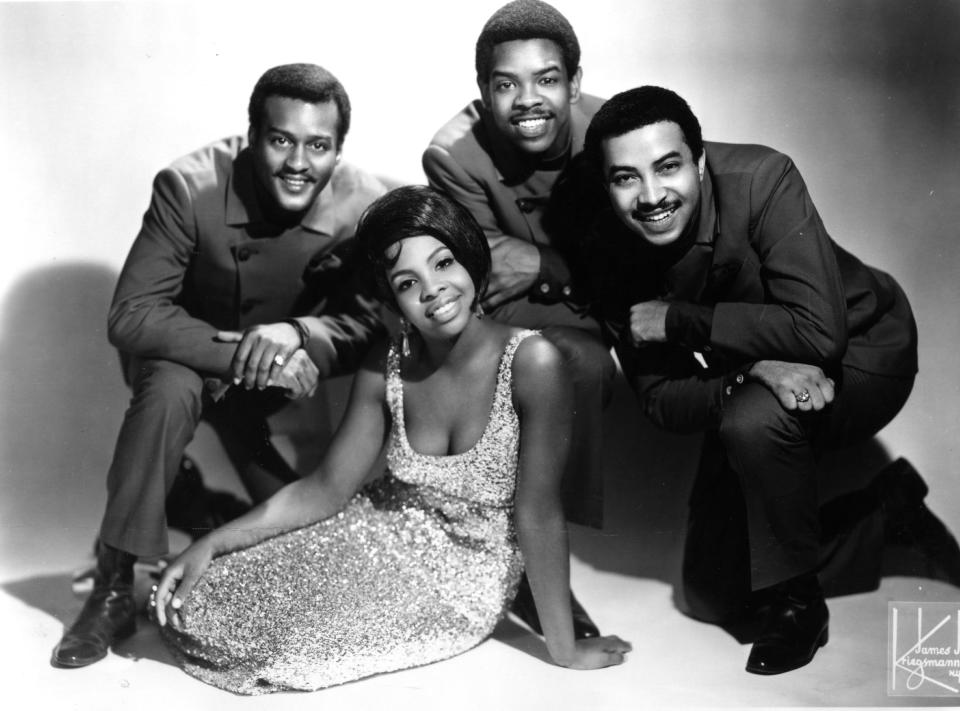
Recorded after Marvin Gaye's chart-topping version — but released first — this is the flexible song's righteous, stompin' rendition.
‘I Heard it Through the Grapevine’
Marvin Gaye (1968)
Motown's Christmas present to the world in 1968: Gaye's aching falsetto, Norman Whitfield's haunting arrangement and — until Eminem’s “Lose Yourself” decades later — the most commercially successful single to emerge from Detroit.
‘I Want You Back’
Jackson 5 (1970)
With the Jacksons' vocals tucked onto an instrumental track originally cut for Gladys Knight & the Pips, this debut single practically drips with exuberance.
‘I Wish It Would Rain’
The Temptations (1968)
Stormy soul from the Tempts in one of David Ruffin’s last hurrahs with the group.
‘I’ll Be There’
Jackson 5 (1970)

It was the biggest hit for one of the most successful groups of the emerging decade. With its shiny melody, echoed background vocals, quirky harpsichord and slick production, it blended the best of the Detroit sound with the label's oncoming West Coast vibe.
‘It Takes Two’
Marvin Gaye & Kim Weston (1967)
All the exhilaration of blissful love gets packed right into the cathartic chorus of this buoyant duet.
‘Just My Imagination (Running Away With Me)’
The Temptations (1971)
Eddie Kendricks tucks a translucent vocal atop this soft-lit track, another dreamy soundscape from producer Norman Whitfield.
SUBSCRIBE: Help support quality journalism like this.
‘(Love is Like a) Heat Wave’
Martha & the Vandellas (1963)
The Holland-Dozier-Holland songwriting team found its legs on this ebullient summer smash. Note the repetitive swap of brief verse and chorus, a brand of song construction that would become a Motown trademark.
‘My Girl’
The Temptations (1965)
Sunshine on a cloudy day? Indeed. David Ruffin's rough-hewn voice traipses through a flower patch of puppy love.
‘My Guy’
Mary Wells (1964)
Cosmopolitan vocals, big beats, a jaunty air — and one of the only American tunes able to bust the Beatles' lock on the top spot in the spring of '64.
‘Money (That’s What I Want)’
Barrett Strong (1960)
Some might say this blustery song — which turned out to be Motown's first Top 40 hit — set the tone for Berry Gordy Jr.'s musical empire: "Give me money / Lots of money ..."
‘Ooo Baby Baby’
The Miracles (1965)

Smokey Robinson’s tenderly rendered falsetto is the star in a lament over love lost.
‘Papa Was a Rollin’ Stone’
The Temptations (1972)
Norman Whitfield’s gritty, funky production and Dennis Edwards’ streetwise lead vocal helped the Tempts create a smoldering, 12-minute masterwork.
‘Please Mr. Postman’
The Marvelettes (1961)

Motown's first pop chart-topper — featuring a young Marvin Gaye on drums — had as much in common with New York's girl-group sound as Detroit's burgeoning soul-pop.
‘Reach Out I’ll Be There’
Four Tops (1966)
Dark, dramatic, gritty balladry. There are few more tension-filled moments in popular music than the one-bar break that sits between this song's verse and chorus.
‘Shop Around’
The Miracles (1961)
Patent it, fellas, this one's the prototype: commercial R&B dance-pop, with Smokey's whimsical lyric and an infectious vocal hook.
‘Shotgun’
Jr. Walker & the All Stars (1965)
In a year of elegantly arranged craftsmanship at Motown, Walker’s driving, rambunctious hit brought a different brand of heat.
‘Signed, Sealed, Delivered I’m Yours’
Stevie Wonder (1970)

Motown on 425 degrees of groove, deep-fried and served with tangy sauce. As the song progresses, listen to Wonder gulping for breath between lines.
‘Someday We’ll Be Together’
Diana Ross & the Supremes (1969)
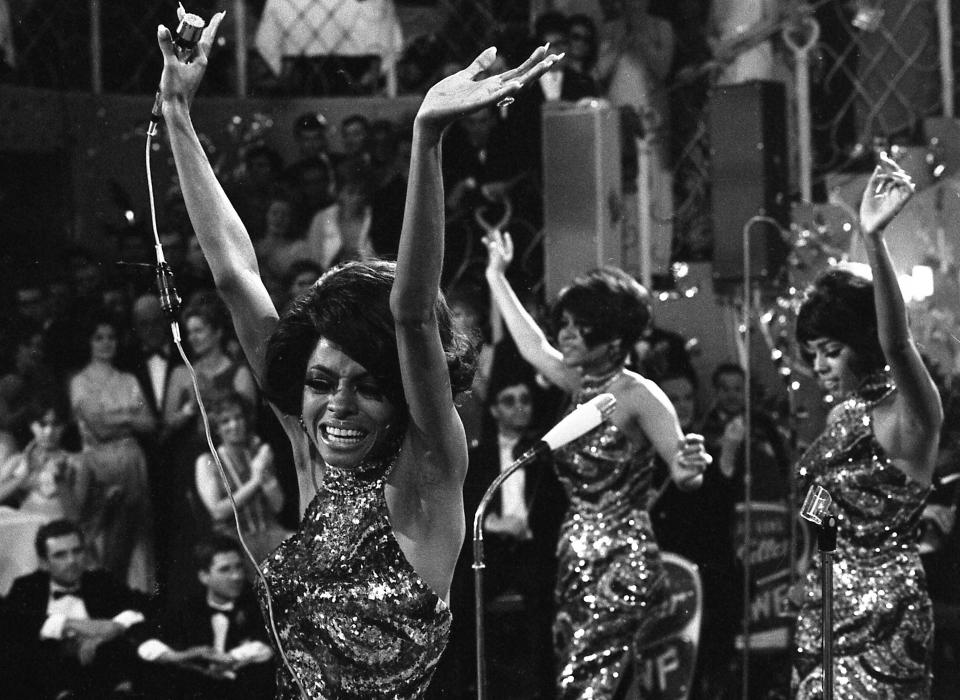
Someday, it turns out, they would not — at least not this incarnation of the Supremes. But this song did make for a poignant — if unintended — farewell just before Ross embarked on a career as a solo star.
‘Standing in the Shadows of Love’
Four Tops (1967)
A showcase track from Holland-Dozier-Holland's so-called classical period, drenched in strings, marked by theatrical shifts in dynamics, and grounded in the same dark key — B-flat minor — as Chopin's "Funeral March."
‘Stop! In the Name of Love’
The Supremes (1965)
The little record that spurred teenage girls to sing and strut in front of their bedroom mirrors.
‘The Tears of a Clown’
Smokey Robinson & the Miracles (1970)
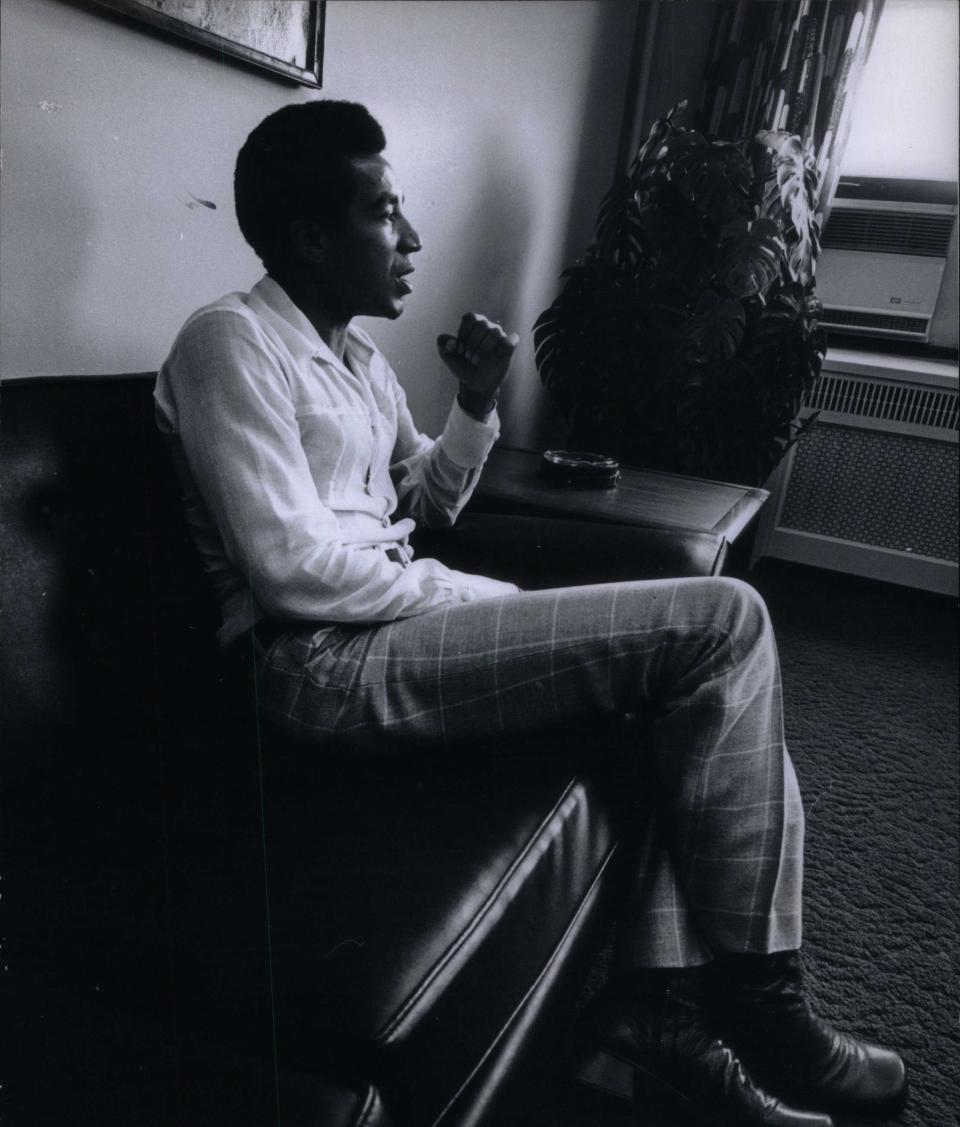
Stevie Wonder wrote the music for this calliope-touched track, recorded by the Miracles in 1967. It was released as a U.S. single three long years later — only after the it had sneaked to No. 1 in England.
‘The Tracks of My Tears’
The Miracles (1965)
Marv Tarplin’s poignant guitar sets the stage for one of Motown’s defining ballads, and Smokey Robinson’s stratospheric voice seals the deal.
‘The Way You Do the Things You Do’
The Temptations (1964)
Miracles Bobby Rogers and Smokey Robinson penned this one driving back to Detroit from a New York gig; producer Robinson turned it into the Tempts' warm 'n' smooth breakthrough hit.
‘This Old Heart of Mine (Is Weak for You)’
The Isley Brothers (1966)
The Isleys’ Motown tenure ran just three years, but it produced one of the enduring pop-soul gems.
‘Too Busy Thinking About My Baby’
Marvin Gaye (1969)
To understand why Gaye was among the best vocalists of his era, listen to his voice as he arrives at the last word of each verse. Most singers would emphasize the downbeat; Gaye eases up, letting his voice softly massage the note through the change, as if he's caressing a feather.
‘Uptight (Everything’s Alright)’
Stevie Wonder (1966)

An ecstatic gush of overdriven sound, with a rock beat so brisk it threatens to trip over itself.
‘War’
Edwin Starr (1970)
After initially recording it with the Temptations, Norman Whitfield took his socially conscious song to Starr, whose fiery delivery helped give Motown its most politically pointed No. 1 song to date.
‘What Becomes of the Brokenhearted’
Jimmy Ruffin (1966)
Beautiful heartache, rendered exquisitely by a long-toiling Hitsville soldier.
‘What’s Going On’
Marvin Gaye (1971)
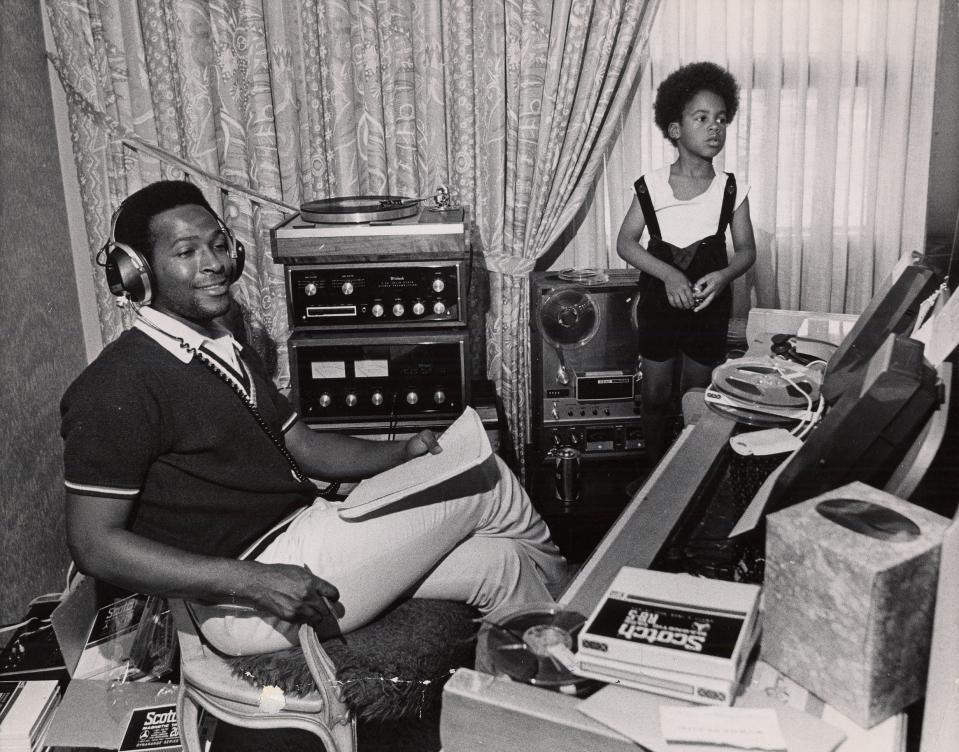
Considered by critics to be among the finest work not only from Motown, but from the last half-century of popular music. The rich, silky track was also one of the last significant songs cut at Detroit’s original Hitsville studio.
‘Where Did Our Love Go’
The Supremes (1964)
The inaugural No. 1 for the girls from the Brewster-Douglass housing projects.
‘You Can’t Hurry Love’
The Supremes (1966)
Diana Ross may have been Motown's queen, but James Jamerson is boss here, driving the music with that familiar stuttering bass line.
‘You Keep Me Hangin’ On’
The Supremes (1966)
This Holland-Dozier-Holland opus is one of Motown's most prolific cover songs: Rockers Vanilla Fudge took it to the Top 10 in (1968), and British pop star Kim Wilde carried it back to No. 1 in 1987.
‘You’re All I Need to Get By’
Marvin Gaye & Tammi Terrell (1968)
One of the all-time classic duets, as Gaye and Terrell match each other note for passionate note.
‘You’ve Really Got a Hold on Me’
The Miracles (1963)
Adolescent ache for the ages, brought to life again by the Motown-infatuated Beatles on their second album.
Explore Hallowed Sound
How Black voices from the South made American music what it is today
Soulful sounds from the South were polished for the masses in Motown
This article originally appeared on USA TODAY: Motown hits: The 50 best and essential songs from the Detroit era
